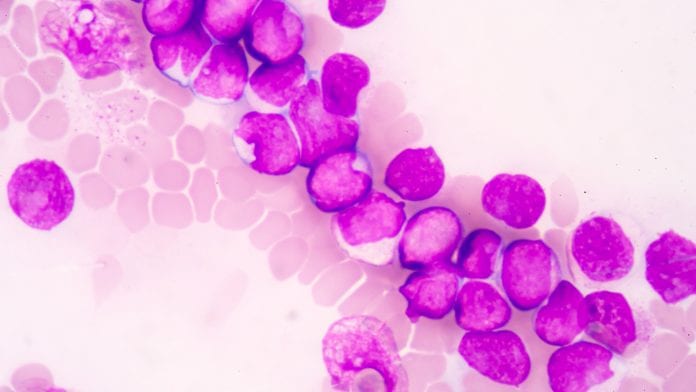
For the first time, patients in Scotland with previously untreated Chronic Lymphocytic Leukaemia will be able to access chemotherapy-free treatment.
The Scottish Medicines Consortium has accepted the chemotherapy-free treatment of Venclyxto (venetoclax) and Obinutuzumab for Scottish patients living with Chronic Lymphocytic Leukaemia (CCL), the most common form of adult leukaemia in the UK. The treatment will now be made available within NHS Scotland.
The 12-month fixed-duration treatment has been shown to improve outcomes for patients living with the disease compared to those receiving chemo-immunotherapy. The combination treatment was approved by the European Commission for adult patients in March 2020.
Chemotherapy-free treatment
The approval is a positive step for Scottish patients living with Chronic Lymphocytic Leukaemia, which, despite novel therapeutic advancements to treat the disease, remains incurable. The treatment has demonstrated its efficacy for allowing patients to live longer without their disease progressing.
Dr Mike Leach, Consultant Haematologist at the Beatson West of Scotland Cancer Centre in Glasgow, said: “Chemo-immunotherapy is currently the first line treatment for most CLL patients, however, it may not be well tolerated in the elderly and in those who have other health issues. The availability of this non-chemotherapy fixed duration combination regimen means that clinicians in Scotland now have another treatment option for these CLL patients, that can offer deeper clinical response and extended remission as well as fewer chemotherapy-related side effects. This has the potential to make a real difference to the lives of our patients.”
Marc Auckland, CLL patient and Chair of the CLL Support Association, said: “The SMC’s decision to make the venetoclax plus obinutuzumab combination treatment available within NHS Scotland to this group of patients is welcome news to the CLL patient community. This new fixed one-year treatment offers patients the opportunity of prolonged remission of treatment, which can help them to stay in work and participate in family and social activities. This can have immense psychological benefits.”










